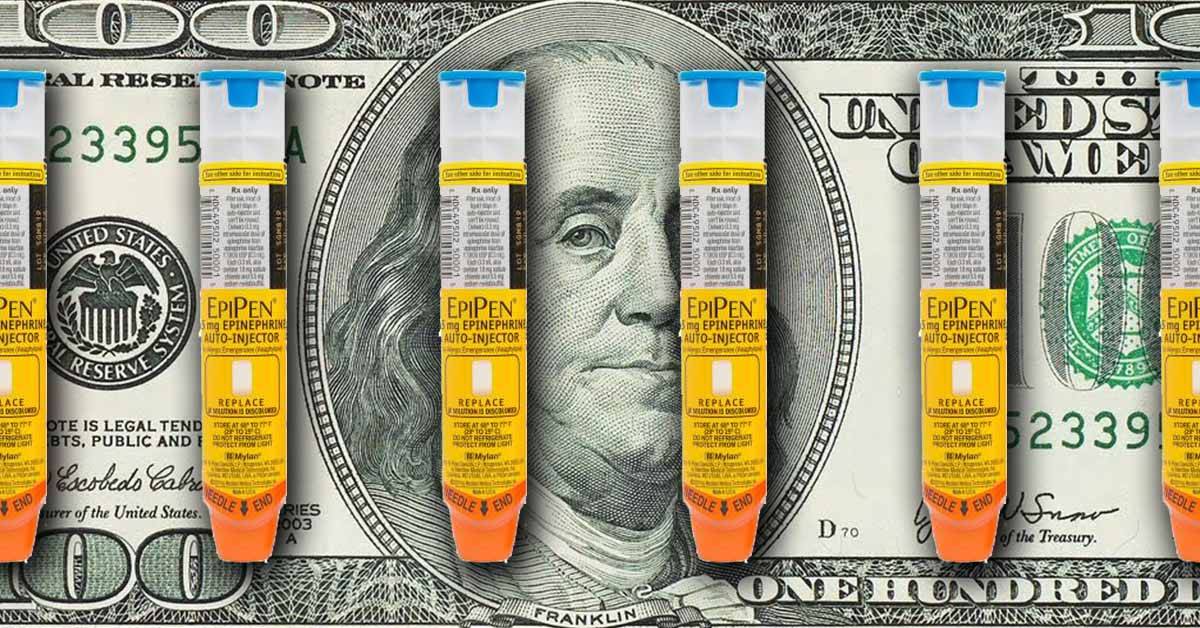Sanofi, the French multinational pharmaceutical company headquartered in Paris, is appealing a ruling by a Kansas District Court in December that ruled in Mylan’s favor.
Sanofi asserts generics giant Mylan used anticompetitive practices to market its EpiPen epinephrine auto-injector and block sales of Auvi-Q which at the time was Sanofi’s competitor to EpiPen.
The company alleges Mylan hiked EpiPen prices in advance of Auvi-Q’s launch, then offered steep discounts to insurance companies on the proviso they would stop covering Auvi-Q. Sanofi is seeking up to $11.7 billion from Mylan for the alleged scheme.
The filing indicated US sales of EpiPen reached $1 billion and accounted for nearly 40% of Mylan’s global profits. According to Sanofi, Mylan raised EpiPen’s price by more than 500% between the years 2008-2016.
In 2015, Sanofi issued a recall of Auvi-Q due to manufacturing issues. The following year, the company reverted the rights to the auto-injector back to kaléo, the original developer of Auvi-Q. Kaléo began manufacturing Auvi-Q in their own facilities and reintroduced the auto-injector in February 2017.
Open Markets Institute, a nonprofit working to address threats to democracy, individual liberties, and national security from corporate concentration and monopoly power, issued an amicus brief in the filing.
The brief explains that Mylan maintained its monopoly in the market for auto-epinephrine injectors using practices that the Sherman Act prohibits in the following ways:
- Instead of competing with Sanofi by reducing the price of and improving the EpiPen, Mylan struck an exclusive deal with pharmacy benefit managers and insurers by offering them lucrative rebates if they agreed to list only EpiPen and exclude Sanofi’s Auvi-Q — a more compact and patient-friendly competitor to the EpiPen — on formularies.
- Because of Mylan’s monopoly and exclusionary practices, the EpiPen is extraordinarily expensive and out of the reach of many who desperately need it.
- Mylan’s conduct foreclosed Auvi-Q’s presence and maintained the EpiPen’s monopoly position.
Said Sandeep Vaheesan, Legal Director of Open Markets:
The soaring price of the EpiPen, an indispensable medical device, has a clear cause: abuse of monopoly power.
In granting Mylan’s motion for summary judgement, the district court not only turned a blind eye to long-established and foundational antitrust laws, but also disregarded the well-being of millions of Americans who rely on the EpiPen to prevent potentially fatal anaphylactic reactions. The district court adopted heightened and unjustified legal burdens in order to excuse Mylan’s exclusionary practices.
The court’s decision frees monopolists to use exclusive dealing to impede rivals and preserve their dominance. The Sherman Act prohibits such monopolistic behavior. The 10th Circuit must rectify this brazen protection of monopolies and uphold anti-monopoly rules on fair competition.
Note of Disclosure: Kaléo is an advertiser with SnackSafely.com.





